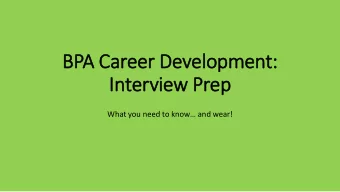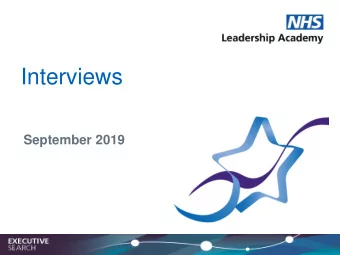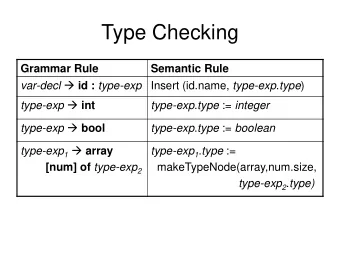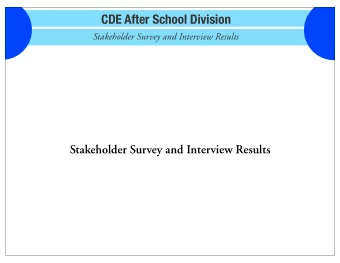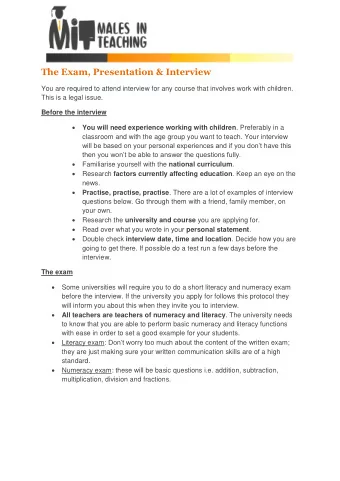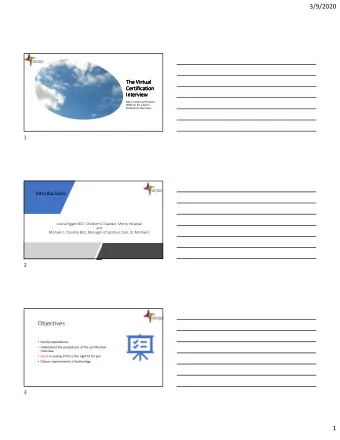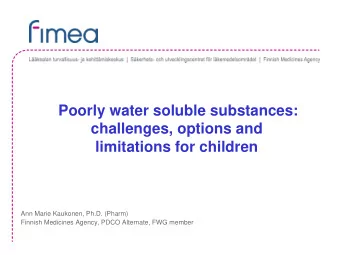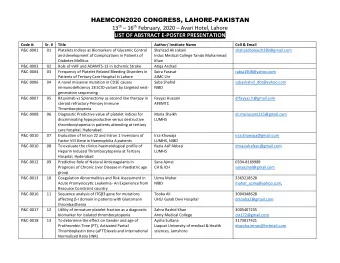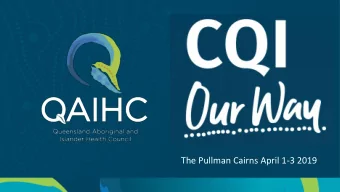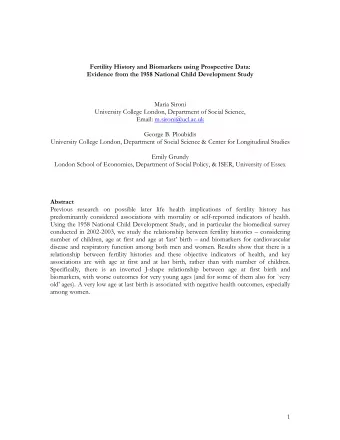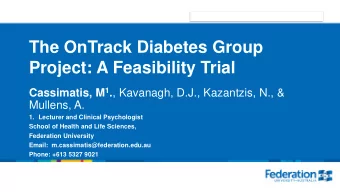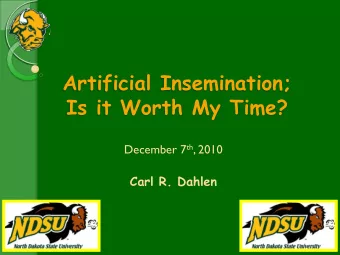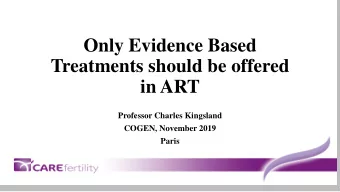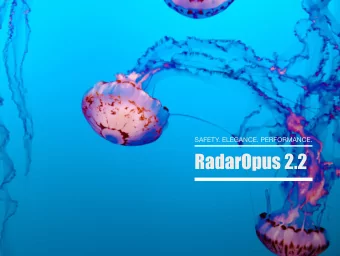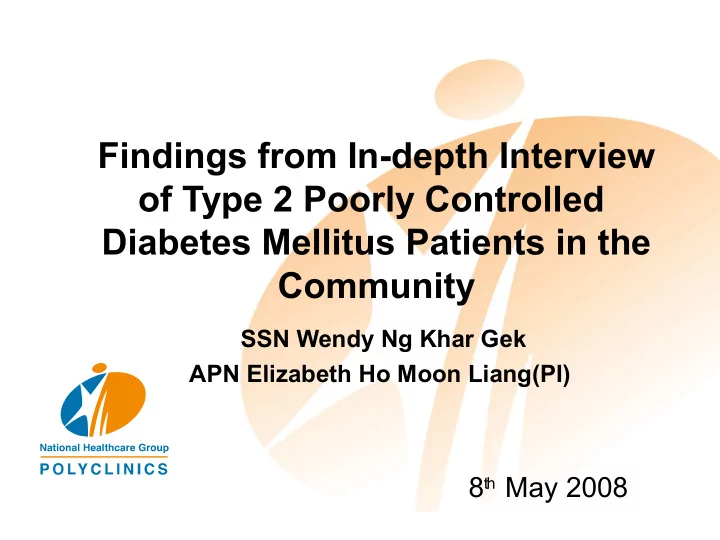
Findings from In-depth Interview of Type 2 Poorly Controlled - PowerPoint PPT Presentation
Findings from In-depth Interview of Type 2 Poorly Controlled Diabetes Mellitus Patients in the Community SSN Wendy Ng Khar Gek APN Elizabeth Ho Moon Liang(PI) 8 th May 2008 Aims To explore the gap between knowledge and behaviour among
Findings from In-depth Interview of Type 2 Poorly Controlled Diabetes Mellitus Patients in the Community SSN Wendy Ng Khar Gek APN Elizabeth Ho Moon Liang(PI) 8 th May 2008
Aims To explore the gap between knowledge and behaviour among patients with Type 2 diabetes who have poor glycemic control in Hougang Polyclinic To explore the above around 3 main domains: Emotional, motivational and contextual
Literature Review Knowledge is the cornerstone of diabetes management for many years Many recent studies showed that having knowledge does not equate to adopting a healthy behaviour This is knowledge-behaviour gap Health behaviour change, such as medication compliance and lifestyle behaviour require understanding sociopsychological behavioural concepts and theories
Literature Review Few qualitative studies had been done on diabetes regarding refusing, initiating or sustaining health care behaviour change PubMed search engine with “Qualitative” limit to Title field and “Type 2 diabetes mellitus” yielded 17 results Explore education programs, adherence to treatment and emotions at diagnosis Need to explore the “knowledge-behavior” gap and answer the burning question “What is stopping my patients from doing what they are supposed to do?”
Methodology Descriptive qualitative approach Purposive sampling One hour recorded interview Recorded interview transcribed word for word Data was coded and analysed by 2 researchers independently First phase - Identification of themes and concepts individually Second phase - Group consensus of themes and concepts identified
Ethical Consideration DSRB and Research Committee National Healthcare Group Polyclinics Informed Consent Participant’s anonymity and confidentiality Right to withdraw at anytime All tape interviews were destroyed after the research
Selection Criteria For past one year, participants * Received Type 2 diabetes mellitus treatment from Hougang Polyclinic * Have glycosylated haemoglobin (HbA1C) 8% and more * Received at least nurse health counselling Mentally sound and able to articulate experiences
Demographic Profiles Mr Lenoard Mr Nelson 57 years old. 45 years old. Chinese. Chinese. Diabetes for 13 years. Diabetes for 16 years. Just started Insulin in On insulin since year Jul 2006 1993 (15 years). Mdm Fatimah 35 years old. Malay. Diabetes for 6 years. Started Insulin on Jan 2007. Ms Mindy Mdm Belinda 62 years old. 67 years old. Chinese. Chinese. Diabetes for 19 years. Diabetes for 9 years. On OHGA only. On OHGA only.
Themes / Concepts Identification: Negative Adapting Mechanism Negative Adapting Style after Intense Fear “… when I first had diabetes, you know, one crazy thing, I fear kidney failure. So one sign of kidney failure is edema ... I see my leg everyday, come home, I take a measuring tape and measure my ankle . I was so afraid of that the one thing I think of is only kidney failure. I don't think about any other problems…” (Leonard) “ … every time I see the NKF I really feel lousy. I will shun the place even now. If I pass by, I see the place, I think I will go one day maybe I end up (there )…” (Leonard) “… subsequently, you tend to forget about it (fear). Then you get over that then the complacency comes in …Actually I don't like to think about it. Actually, I don't want to think about it . When you think about it, you dwell on it, then you will sink into a depressing mood and all that. Especially if you dwell upon it, it's bad, you keep thinking about it, become obsessive about it, then it's not good for you ..” (Leonard)
Themes / Concepts Identification: Negative Adapting Mechanism “I try not to think of (diabetes complications). The more think of it, the fear inside me is tremendous .. I’m staying alone. Who is going to be taking care of me? That’s why the fear is tremendous. Though nobody knows. That’s why I’m so happy my kidneys is still functioning, I must take good care. The fear is very real … Not like cancer. Like you know for certain the time is fixed; the time ends there. Now I fear, but I don’t know when is the time… maybe just enjoy life. Come what may .” (Nelson) “Of course, who wish their healthy life end in sickness. Sad yes, but I come to accept it already. What is already have, cannot be cured anymore. What’s the used of being sad? Just live one day at a time.” (Nelson)
Themes / Concepts Identification: Negative Adapting Mechanism “… when I heard I had diabetes, I cried. I cried a few days. Then, my husband nag, nag, nag and say “it's nothing, if you keep on doing this, you will suffer... just think positively …” (Fatimah) “I tell myself I must be strong. I must be strong. Because my children need me, my husband also need me …so from that time onwards. I don't feel a thing… those unpleasant things happen to me or what, I just push it aside. Just put them aside like unpleasant memories . I don't want to think about it. I only want to think about pleasant things.” (Fatimah) “ (Currently) I don't want to try to imagine (diabetes complications). I don't want to imagine at all… I don't want to predict and I just want to think about today , not yesterday or tomorrow.” (Fatimah)
Health Belief Model Coping Benefits Mechanism Minus Barriers Demographic Characteristics Perceived Severity Perceived threat of Likelihood x disease to Action Perceived Susceptibility Cues to action Glanz, Rimer & Lewis(2002). Health Behaviour And Health Education:Theory, Research & Practice
Suggested Implications Fear messages are often given because of the belief that higher perceived threat of disease will result in change. Clinicians now have to reconsider seriously the effectiveness of fear messages Does it really result in higher perceived threat or will it result in higher avoidance?
Themes / Concepts Identification: Intense Emotions on Medications “I just want try to avoid the medicine, every time want to take medicine, jin gan ko (a torture) … (Medicine pills) very big some more and hard. Three plus the high cholesterol that one and a half. Jia Dao Kia ("eat till scared").” (Belinda) “… no doubt it's water and swallow. Sometimes stuck between so uneasy you know.. Even now, you see, you still have to take, sometimes you rush, save time, you just take the medicine and go, isn't it torturing? If you don't have this kind of sickness, you don't care, you just go anywhere. Free bird like that lah…but now, you're not free bird . Even when you're traveling, you must try to remember to take your medicine.” (Belinda)
Themes / Concepts Identification: Intense Emotions on Eating Behaviour “… when I really, really, really scared then okay, I don't take (unhealthy food) for a few days . Then after that the craving come back . It's a craving that, you know cannot stop .” (Fatimah) “I really admire my husband, he really can stop everything. If he don't want, he don't eat, he just take the cereal, the brown, brown one … and then just plain water. I can't. When I see the oats, I feel like vomiting . I don't like, I just don’t like it .” (Fatimah)
Themes / Concepts Identification: Intense Emotions on Eating Behaviours “I cannot (return to the diet which he lost weight from 83 to 72kg,) because… I wanted to… but I’ve to say; now I got multiple sickness. I got hypertension, I got high cholesterol, how long can I live anymore? How long can I eat anymore? The only thing now I can enjoy food . Sometimes holidays, that’s all. What more do you want? So I don’t bother too much. If I don’t eat now, next time I can’t eat. I know my sugar is high, still I like my fruit juice very much ….” (Nelson) “I still can do more (changes), but I don’t want to do more. Because the food is too tempting. I cannot resist the things that I like.” (Nelson)
Themes / Concepts Identification: Intense Emotions on General Health “Ya because mostly I enjoy sleeping … I will put sleeping first (is importance). Then eating. Exercise last … Not only diabetes. Mental health is much more important …I went into depression after my mother got a stroke. I was on medications for 3 years.Prozac. It is no joke. Going to depression and coming out is very difficult. So lost. So painful. It’s very painful you know to go into depression. It just feels like you are hopeless. You are helpless. I don’t wish to die… Never go into depression. It’s very difficult. You must be very strong to come out…Horrible. It’s horrible.” (Mindy) “ I am more frightened of having depression again than the consequences of diabetes .” (Mindy)
Assumptions Health behaviour appeared to have emotions attached to them. Either they like it, or they don’t like it. These feelings are present on different levels of intensities. Feelings are motivators or barriers to health behaviour change. Patients with diabetes have a lot of emotions, sometimes in conflict with each other.
Suggested Implications Clinicians need to reflect if the current teaching style of telling patient what to do will result in effective health behaviour change. Patient with diabetes have very complex emotions link to health behaviour Other skills such as reflective listening, reframing, empathizing and exploring ambivalence are needed in a clinical session
Recommend
More recommend
Explore More Topics
Stay informed with curated content and fresh updates.
